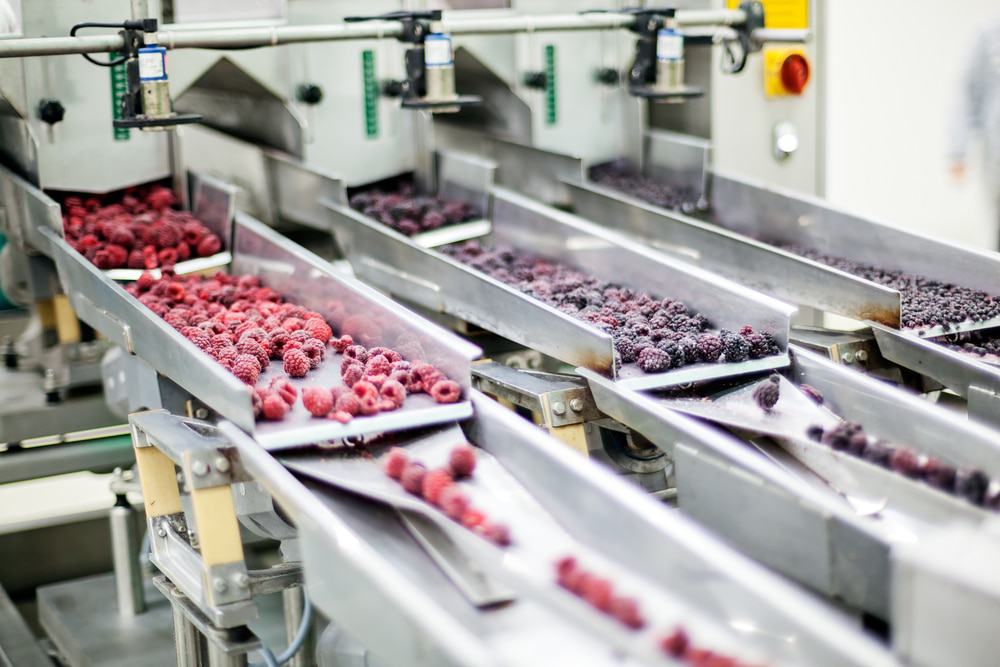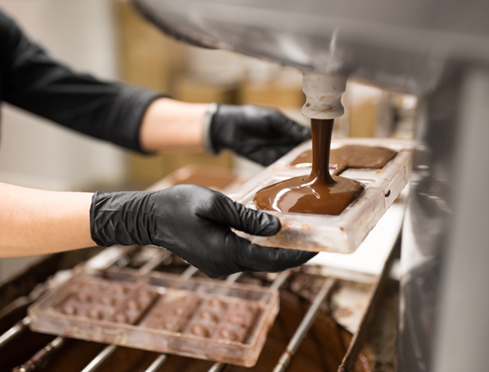Introduction
In the dynamic as well as busy globe of contract food manufacturing, making sure secure and trusted manufacturing is of utmost value. With the increasing demand for top notch foodstuff, it is important for agreement makers to adhere to strict policies and also criteria. One such criterion that plays an important role in guaranteeing the security and dependability of contract food manufacturing in Australia is Excellent Manufacturing Practices (GMP). In this short article, we will discover the relevance of GMP in the context of contract food manufacturing in Australia.
Contract Food Production: An Overview
Before diving right into the role of GMP, let's initial recognize what contract food manufacturing requires. Contract food manufacturing refers to the process where a firm contracts out the manufacturing of its food to a specialized supplier. This enables business to concentrate on various other elements of their business, such as advertising and also circulation, while leaving the production procedure to experts.
In Australia, contract food manufacturing has acquired significant traction because of its many benefits. It makes it possible for firms to tap into the knowledge and resources of skilled suppliers, reduces functional prices, as well as provides accessibility to advanced facilities. Nevertheless, with these advantages come various difficulties, consisting of preserving product quality, adhering to security regulations, and also ensuring uniformity throughout the manufacturing process.
The Importance of GMP in Contract Food Manufacturing
Good Production Practices (GMP) are a set of standards that describe the minimal requirements for making sure safe and reliable manufacturing in different sectors, consisting of food manufacturing. These practices include all aspects of production, from facility design to personnel training and item testing.

GMP plays an essential role in contract food manufacturing by developing quality control procedures that shield consumers from prospective health hazards. By adhering to GMP criteria, contract suppliers can make sure that their procedures are efficient, constant, and compliant with governing requirements. This not only safeguards public health yet also enhances the credibility as well as credibility of both the manufacturer and the brand name they are producing for.
The Key Elements of GMP in Contract Food Manufacturing
To understand how GMP ensures risk-free as well as trustworthy contract food manufacturing in Australia, let's explore several of its key elements:
1. Facility Layout and Maintenance
Proper facility style is necessary to decrease the threats of contamination and also make sure a sanitary production environment. GMP guidelines specify needs for design, construction products, air flow, lighting, and waste monitoring systems. Normal upkeep as well as cleaning are likewise vital to stop the buildup of pathogens or contaminants.
2. Worker Training
Well-trained workers are the backbone of any type of effective contract food manufacturing procedure. GMP highlights the importance of training employees on hygiene practices, appropriate handling of equipment and components, irritant control, and also individual protective measures. Ongoing training programs guarantee that workers stay updated with market ideal practices.
3. Raw Material Control
GMP mandates stringent control over resources made use of in the production procedure. This consists of verifying provider credentials, performing inbound evaluations for quality assurance, implementing proper storage space treatments, and also preserving traceability throughout the supply chain. Adhering to these controls aids prevent contamination and ensures that just secure and also premium components are used.
4. Product Examining as well as Quality Assurance
Regular product testing is an indispensable component of GMP to verify that products meet required specs and also safety criteria. This includes microbiological screening, chemical analysis, sensory analysis, and shelf-life researches. By carrying out detailed screening at different stages of manufacturing, agreement producers can recognize possible problems early on and take restorative actions promptly.
5. Paperwork and Record-Keeping
Accurate documents is important to show conformity with GMP guidelines. This includes keeping documents of raw material suppliers, equipment calibration, personnel training, cleaning up contract manufacturer routines, batch production records, and product release documentation. Good documents practices enable manufacturers to map any problems or deviations and also take suitable restorative actions.
6. Audits as well as Inspections
Regular audits and evaluations are carried out by governing bodies or third-party companies to make sure conformity with GMP standards. These analyses assess the effectiveness of a contract supplier's top quality management system, identify areas for renovation, as well as offer assurance that all required controls are in place.

FAQs regarding GMP in Agreement Food Manufacturing
What is the role of GMP in contract food manufacturing? GMP plays a critical role in ensuring secure and also reliable contract food manufacturing by establishing standards for quality assurance, facility layout, employees training, item screening, paperwork, and audits.

How does GMP add to consumer security? By sticking to GMP requirements, agreement suppliers can lessen the threats of contamination as well as guarantee that foodstuff satisfy needed security standards. This secures consumers from potential health hazards associated with unsafe food.
What are the consequences of non-compliance with GMP standards? Non-compliance with GMP guidelines can have extreme repercussions, consisting of item recalls, legal fines, damage to brand name track record, as well as possible harm to consumers' health. It is essential for contract manufacturers to focus on adherence to these standards.
Is GMP obligatory for contract food manufacturing in Australia? Yes, GMP is necessary for all agreement food manufacturers in Australia. The Australian government has applied stringent guidelines to make sure that all food products satisfy the greatest safety as well as high quality standards.
How can acquire suppliers implement GMP properly? Agreement producers can implement GMP properly by investing in durable top quality administration systems, carrying out routine training programs for employees, teaming up with relied on distributors, maintaining accurate paperwork, and undergoing normal audits and also inspections.
Can GMP qualification enhance an agreement maker's online reputation? Yes, obtaining GMP qualification shows an agreement maker's dedication to producing safe and high-grade food products. It improves their online reputation and reliability amongst clients as well as consumers alike.
Conclusion
In the realm of contract food manufacturing in Australia, sticking to Good Manufacturing Practices (GMP) is vital for guaranteeing safe and also reputable manufacturing. GMP guidelines include various elements of the manufacturing procedure, including facility layout, workers training, resources control, product testing, paperwork, and audits. By applying as well as keeping these methods, contract producers can safeguard customers from possible health hazards, improve their track record, and add to the overall safety and security as well as top quality of the food industry. As the need for contract food manufacturing continues to grow, it is essential for producers to prioritize GMP conformity to meet regulatory needs and also go beyond customer expectations.